The Black Robe Regiment
Dissenting Clergy
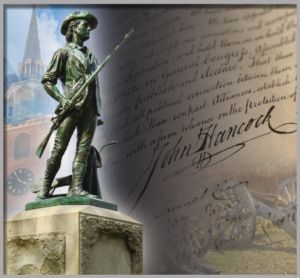
Peter Oliver was a lawyer and by the time of the Revolution had risen to the position of chief justice of the Superior Court in Massachusetts. He was incredibily wealthy, served in a variety of community and church positions and was fiercely loyal to the crown.
His perspective on the Revolutionary War was that of a Tory. Unlike the way in which most historians present John Adams and other such Patriots as noble statesmen, Oliver saw them as deluded troublemakers.
Not long after Cornwallis’ surrender, Oliver published a book entitled, “Origin and Progress of the American Rebellion: A Tory View.” What makes his perspective valuable is that he has nothing to gain by glamorizing or exaggerating any one aspect of the American effort to win their independence, in that he views all of it as a form of sedition.
At one point, he sets aside an entire section of his text to describe the “Black Robe Regiment,” or what he refers to as the “Black Regiment.”
He begins by saying…
It may not be amiss, now, to reconnoitre Mr. Qtis’s black Regiment, the dissenting Clergy, who took so active a Part in the Rebellion.1
He elaborates on the “dissenting clergy” as flawed ministers, who according to Oliver, were ordained only because of a grave mistake having been made by the Governors of the Church of England. He identifies several men of the cloth including Jonas Clark, Dr. Charles Chauncy and others as being, not only members of the Regiment, but also extremely influential. He references two annual conferences that hosted pastors from all of the state and it was there that the “Black Regiment” was able to exert a substantial amount of influence in the name of rebellion and evil.
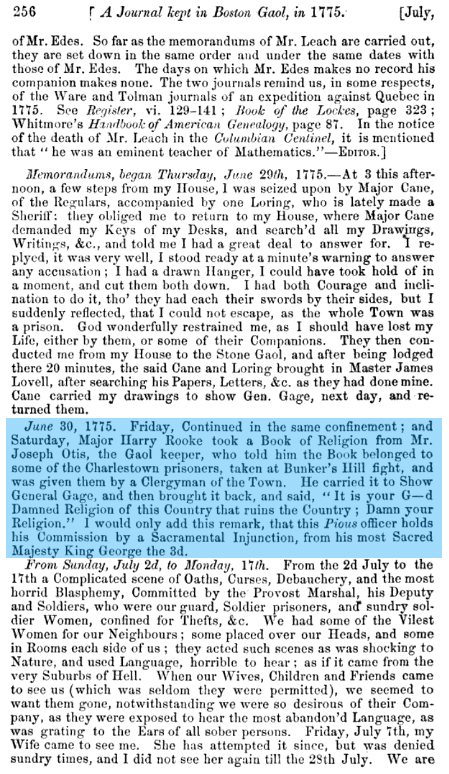
In this Town was an annual Convention of the Clergy of the Province, the Day after the Election of his Majestys Charter Council; and at those Meetings were settled the religious Affairs of the Province; & as the Boston Clergy were esteemed by the others as an Order of Deities, so they were greatly influenced by them. There was also another annual Meeting of the Clergy at Cambridge, on the Commencement for graduating the Scholars of Harvard College*, at these two Conventions, if much Good was effectuated, so there was much Evil. And some of the Boston Clergy, as they were capable of the Latter, so they missed no Opportunities of accomplishing their Purposes. Among those who were most distinguished of the Boston Clergy were Dr. Charles Chauncy, Dr. Jonathan Mayhew & Dr. Samuel Cooper?* & they distinguished theirselves in encouraging Seditions & Riots, untill those lesser Offences were absorbed in Rebellion.2
You see Oliver’s “concern” reiterated on multiple occasions and in different ways.
On the Battlefield
For example, John Leach was imprisoned for sending to Patriot forces information pertaining to the dispostion of British troops. He recorded some of his experiences while in prison in a Journal that’s preserved in the “New England Historicial and Genealogical Register for the Year 1865.”
On June 30, he talks about a comment made by one of his British jailers…
June 30, 1775. Friday, Continued in the same confinement; and Saturday, Major harry Rooke took a Book of Religion from Mr Joseph Otis, the Gaol keeper, who told him the Book belonged to some of the Charlestown prisoners, taken at Bunker’s Hill fight, and was given them by a Clergyman of the Town. He carried it to show General Gage, and then brought back, and said, “It is your G–d Damned Religion of this Country that ruins this Country; Damn your Religion.” I would only add this remark, that this Pious officer holds his commission by a Sacramental Injuection, from his most Sacred Majesty King George the 3d.3
His Majesty, King George III
You can also see the prominence of Christianity and how certain denominations were regarded with a special sense of disdain by even the king of England when you consider the diary of Thomas Hutchinson.
Thomas Hutchinson was the Governor over Massachusetts appointed by King George. He recorded a conversation he had with the monarch in July of 1774.
This would’ve been in the aftermath of “The Coercive (Intolerable) Acts of 1774” that were enacted as punishment for the Boston Tea Party. These were incendiary moves on the part on the part of King George that would result in galvanizing the colonies even further in their resolve to separate from England.
Among the things represented in the new legislation was the replacement of the Massachusetts Council with officials appointed by the crown rather than it being an elected body. You can hear King George questioning the way in which this new group of leaders was being received in the conversation he was having with his Governor. He begins by asking what sort of doctrine is being preached in the colonies…
King George: I have heard, Mr H., that your ministers preach that, for the sake of promoting liberty or the public good, say immorality or less evil may be tolerated?
Hutchinson: I don’t know, sir, that such doctrine has ever been preached from the pulpit; but I have no doubt that it has been publicly asserted by some of the heads of the party who call themselves sober men, that the good of the public is above all other considerations, and that truth may be dispensed with, and immorality is excusable, when this great good can be obtained by other means.
King George: That’s a strange doctrine, indeed. Pray, Mr H., what is your opinion of the effect from the new regulation of the Council? Will it be agreeeable to the people and will the new appointed Councillors take the trust upon them?
Hutchinson: I have not, may it please your Majesty, been able to inform myself who they are. I came to town late last evening, and have seen nobody. I think much will depend upon the choice that has been made.
❶ King George: Enquiry was made and pains taken that the most suitable persons should be appointed.
❷ Hutchinson: The body of the people are Dissenters from the Church of England; what are Congregationalists. If the Council shall have been generally selected from the Episcopalians, it will make the change more disagreeable.
❸ King George: Why are they not Presbyterians?
❹ Hutchinson: There are a very few churches which call themselves Presbyterians, and form themselves voluntarily into a Presbytery without any aid from the civil government, which the Presbyterian Church of Scotland enjoys.
Lord Dunmore: The Dissenters in England at this day are scarce any of them Presbyterians, but like those in New England, Congregationalist, or rather Independents.
King George: Pray, what were your ancestors, Mr. H.?
Hutchinson: In general, sir, Dissenters.
King George: Where do you attend?
Hutchinson: With both, sir. Sometimes at your Majesty’s chapel, but more generally at a Congregational church, which has a very worthy minister, a friend to government, who constantly prays for your Majesty, and all in authority under you.
King George: What is his name?
Hutchinson: Doctor Pemberton.
King George: I have heard of Doctor Pemberton that he is a very good man. Who is minister at the chapel?
❺ Hutchinson: The Rector is Dr. Caner, a very worthy man also, who frequently inclulates upon his hearers due subjection to the government and condemns the riotous violent opposition to it; and besides the prayers in the Liturgy, generally in a short prayer before the sermon, expressly prays for your Majesty, and for the Chief Ruler in the Province. 4
❶ Here is where King George is inquiring about the Massachusetts Council that used to be an elected body that has now been replaced with people who’ve been appointed by the crown.
❷ The “Dissenters from the Church of England,” in this context, refers to the Congregationalists who were loyal to the crown and had not repudiated the Church of England. These were the posterity of the early Pilgrims and Puritans who had settled in the New World in the early seventeenth century.
Lead by William Bradford in 1620, the Pilgrims, also called “Separatists,” were resolved to worship in a manner consistent with the Scriptures as opposed to the institutionalized church created by Henry VIII in order to secure the divorce the Pope was unwilling to grant him.
The Puritans were similar to the Separatists, but instead of wanting to break completely from the Church of England, they wanted to merely purify it. They arrived in the New World in 1630 and established the Massachusetts Bay Colony just south of Plymouth Rock.
By the 18th century, the Puritans and the Pilgrims had combined to form the Congregationalists. But while they were now functioning under one denominational heading, you still had two distinct groups that were defined by their allegiance to the king.
Published in 1907, “The Loyalists of Massachusetts and the Other Side of the Revolution,” written by James H. Stark, references this dynamic.
The characteristics of the separate and independent governments of these two classes of Puritans were widely different. The one was tolerant, non-persecuting, and loyal to the King, during the whole period of its seventy years’ existence; the other was an intolerant persecutor of all religionists who did not adopt its worship, and disloyal, from the beginning, to the government from which it held its Charter, and sedulously sowed and cultivated the seeds of disaffection and hostility to the Royal government until they grew and ripened into the harvest of the American Revolution.5
This is, perhaps, one of the reasons why King George and his Governor could feel somewhat confident that they were drawing from an amicable group of people by defaulting to a specific “type” of Congregationalist. Doctrinally, they were not altogether consistent with the Anglican church, but they were at least somewhat sympathetic to their English Sovereign.
As far as Hutchinson’s reference to the Episcopalians, while they did not formally organize until 1780, during the period leading up to the Revolutionary War, they were considered the American version of the Church of England. While there were exceptions, an Episcopalian’s loyalty to the crown was more pronounced then their Congregationalist counterpart and certainly more intense than what you saw in the various sects that sprung up in the aftermath of the Great Awakening. You see this in the way many Episcopalians felt obliged to flee America after the Revolutionary War, including the Episcopalian minister referenced by Hutchinson in his conversation with King George.
The fact that Hutchinson states that staffing the new Massachusetts Council with Episcopalians would’ve been “more disagreeable,” is indicative of the way ardent Patriots viewed Episcopalians with suspicion. Hence the choice of those coming from the Congregationalist group would be a more strategic option.
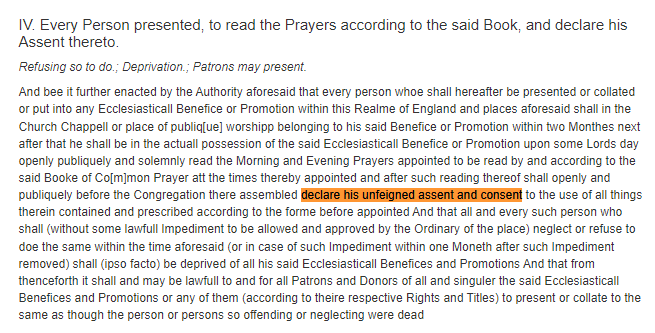 ❸ To understand King George’s comment, you have to go back to the sixteenth century and look at the way in which the crown had exacted legislation that compelled a uniform approach to Christ that ultimately violated the Word of God.
❸ To understand King George’s comment, you have to go back to the sixteenth century and look at the way in which the crown had exacted legislation that compelled a uniform approach to Christ that ultimately violated the Word of God.
Act of Uniformity
In 1558, Queen Elizabeth, as part of trying to eliminate the tensions between Catholicism and the Protestant mindset, she introduced legislation that dictated the way in which people were to pray and worship. It was called, “The Act of Uniformity” and it included a revised “Book of Common Prayer” which outlined how services were to be conducted as well as the verbiage of the prayers that were to be said everyday (click here to see the prayer that was to be repeated every morning). In addition, it made it a punishable offense to not attend Anglican services once a week and it required prayers to be made for the king, which implied a political commitment to the monarch regardless of his or her rule and its consistency with Scripture.
In 1662, it was revised to include a mandate for all ministers to be ordained according to an Episcopal format and to “declare his unfeigned assent and consent to the text” (see sidebar). This resulted in over 2,000 ministers being ejected from their pastorate in what was called, “The Great Ejection.
Thoroughly Protestant
While the Church of England represents a hybrid combination of both Protestant and Catholic doctrines, Presbyterians, on the hand, are thoroughly Protestant. From the perspective of the monarchy, they were positively toxic in part because of the way in which they recognized how the church was being manipulated by various sovereigns to perpetuate their power.
Elizabeth not unreasonably believed that the maintenance of the Episcopacy was necessary to the continuance of Royalty. She knew that the church of Geneva, which the Puritans declared to be their model, was not only essentially republican, but could not be perfectly established except in a republic...6
The Church of Geneva was founded in 1536 during the Protestant Reformation. It represented the central location of Protestant thought. As a Presbyterian, while you were not Puritanical in your doctrine, you nevertheless shared with some of your Puritan counterparts an unwillingness to allow a monarch to dictate your conscience in the way you worshipped, how you were to set up your church leadership or the way you ministered to others.
And while the Presbyterian denomination is a separate group of believers who subscribe to a particular set of doctrines, including, in some circles, a Calvinistic approach to predestination, in many instances when you hear an 18th century Englishman refer to a “Presybyterian,” it was a reference to anyone who recognized the discrepancy between engaging your faith according to a biblically based paradigm as opposed to a government imposed infrastructure (see “The Presbyterian Rebellion?” sidebar).
This is where much of the real tension surfaced.
Church Government
In addition to the fact that all men are created equal (Gen1:26; Prov 2:22; Gal 3:28) thus invalidating the Divine Right of Kings, a large part of the Presbyterian doctrine pertained to church government. Churches were to be governed by elected elders not Anglican Bishops. By attempting to impose a crown appointed hierarchy to rule over the spiritual affairs of a Presbyterian who believed that leadership should be based on a biblically founded approach, England violated an Absolute documented in Scripture. As a result, Presbyterians were only too willing to oppose the established order and because of the presence they commanded in New England, the Revolution was often referred to as something inspired by a Presbyterian perspective.
Chief Instigators
You see this dynamic reflected in a pamphlet written by Joseph Galloway, who was a former speaker of the Pennsylvania Assembly. He opposed the Revolution and fled to England. He believed that the Revolution was a religious quarrel instigated by Congregationalists and Presbyterians…
But they did not stop there: The principal matter recommended by the faction in New England, was a union of the congregational and presbyterian interests throughout the Colonies…Thus the Presbyterians in the southern colonies, who, while unconnected in their several congregations, were of little significance, were raised into weight and consequence; and a dangerous combination of men, whose principles of religion and polity were equally averse to those of the established Church and Government, was formed.7
Dr. Albert S. Bolles in his history of the Province and State of Pennsylvania from 1609 to 1790 reinforces that by elaborating on the enemy’s regard for Presbyterian clergy…

English Translation: “In this building formerly York Hotel on September 3, 1783 David Hartley, on behalf of the King of England, Benjamin Franklin, John Jay, John Adams, on behalf of the United States of America, signed the Final Treaty of Peace recognizing the independence of the United States.”
To the Presbyterian clergy the enemy felt an especial anitpathy. There were accounted the ringleaders of the rebellion. For them there was often not so much safety in their own dwellings as in the camp. When their people were scattered, or if it was no longer safe to reside among them, the only atlernative was to flee or join the army, and this alternative was often presented. Not unfrequently the duty of the chaplain or the pastor exposed him to dangers as great as those which the common soldier was called to meet. There was risk of person, sometimes capture, and sometimes loss of life.8
David Hartley was Britain’s Minister Plenipotentiary. He had full diplomatic powers and represented the crown when he signed the Treaty of Paris with John Adams, Benjamin Franklin, and several others in 1783. Hartley and Franklin were good friends and Hartley frequently spoke against the Revolution in Parliment. After Cornwallis’ surrender at Yorktown, it was Hartley and Franklin that composed the Treaty of Paris.
On February 3rd, 1779, Franklin responded to Hartley who had written a letter proposing that the United States end their alliance with France. At one point, he says:
The long, Steady, & kind regard you have shown for the Welfare of America, by the whole Tenour of your Conduct in Parliament, satisfies me, that this Proposition never took its Rise with you, but has been suggested from some other Quarter; and that your Excess of humanity, your Love of Peace, & your fears for us that the Destruction we are threatened with, will certainly be effected, have thrown a Mist before your Eyes, which hindred you from seeing the Malignity, and Mischief of it.— We know that your King hates whigs and Presbyterians; that he thirsts for our Blood; of which he has already drank large Draughts; that his servile imprincipled Ministers are ready to execute the wickedest of his Orders, and his venal Parliament equally ready to vote them just.9
Franklin doesn’t attempt any restraint or indulgence in describing King George or those members of Parliment who viewed America with disdain. The fact that he begins his description with the way in which King George hated Presbyterians demonstrates the way in which the monarchy associated the Revolution with a Christian perspective.
At the Highest Levels of Government
Members of Parliament were being informed from a variety of sources as to the nature of the American rebellion being founded on a religious premise.
Andrew Hamond was a captain in the British Navy. In a letter dated August 5, 1776, to Hans Stanley, a British Diplomat who sat in the House of Commons, he mentions that while there are some within the colonies who are loyal to the crown, there are nevertheless deep religious convictions running thoughout that, in some cases, are thoroughly determined to gain their independence:
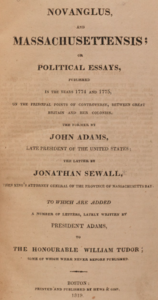
It seems that they have long had divisions among them on religious accounts, and the Churchmen are clearly of opinion that it is the Presbyterians that have brought about this revolt, and aim at getting the government of America into their hands. 10
William Jones of Nayland was a distinguished theolgian and a prolific writer. In 1776 he wrote an essay entitled, “An Address to the British Government on a Subject of Present Concern, 1776” in which he addresses what he believes to be the principle driving force of the American Revolution:
And having nothing now to oppose but the Hanover family on the throne, they have at last taken up arms against that, and will carry on a war against the authority, the commerce, and the honour of this country, as long as they have the means of rebellion in their hands; for this has been a Presbyterian war from the beginning as certainly as that in 1641; and accordingly the first firing against that King’s troops was from a Masschuset meeting-house. 11
The Presbyterian was considered to be one of the chief instigators of the War for Independence, hence King George’s comment to Hutchinson when he was asking if the Congregationalists being considered were of the Presbyterian stripe.
❹ The Presbyterian Church was started by John Knox in Scotland. It’s presence in the vocabulary being used by those in Parliment wasn’t so much a reference to doctrine as much as it was a referral to the way in which a biblically based argument was being used by “Presbyterians” to justify servering ties with England.
You see this explained by John Adams in a letter he wrote to Hezekiah Niles, who was the editor and publisher of the Niles’ Weekly Register from 1811-1836 and before that was the editor of the Baltimore Evening Post.
In his letter, Adams refers to Dr. Jonathan Mayhew who was one of the earliest ministers to object to the idea that it was a Christian’s duty to suffer beneath the administration of a tyrant. Rather, according to Mayhew, it was the Christian’s obligiation to resist (“Religion and the Founding of the American Republic”, Dr. James H. Hutson, Library of Congress, Washington, DC, 1998, p39). In addition to being an articulate speaker, he was also a prolific writer. At one point, he wrote a lengthy exposition entitled, “Conduct of the Society for Propagating the Gospels in Foreign Parts.” This was a rebuke directed towards the Church of England, who, under the auspices of witnessing to unchurched peoples, were using their charter to enforce an Anglican approach to one’s relationship with Christ and church government.
This was, again, an extension of the “Act of Uniformity” referenced earlier. Because it struck at the way in which the Church was to be set up according to a biblical model as opposed to a state sanctioned heirarchy, the “Presbyterian” dynamic was considered by the Church of England to be a problem that needed to be rooted out.
Mayhew’s addresses this in Section XIV which is entitled, “That the Society have long had a formal design to root out Presbyterianism, and to establishing both Episcopacy and Bishops in the colonies: In pursuance of which favourite project, they have in a great measure neglected the important ends of their institution.”
However this may or may not resonate as a serious issue in the mind of a 21st century layperson, in the eighteenth century when Christianity was more than just a token tradition, it had monumenal ramifications which Adams explains…
If any Gentleman Supposes this Controversy to be nothing to the present purpose, he is grossly mistaken. It Spread an Universal Alarm against the Authority of Parliament. It excited a general and just Apprehension that Bishops and Diocesses and Churches, and Priests and Tythes, were to be imposed upon Us by Parliament. It was known that neither King nor Ministry nor Archbishops could appoint Bishops in America without an Act of Parliament; and if Parliament could Tax Us they could establish the Church of England with all its Creeds, Articles, Tests, Ceremonies and Tythes, and prohibit all other Churches as Conventicles and Sepism Shops.12
What Adams is saying is that the Revolution was more than just an agitated populace wanting a more just representation in Parliment. The Church of England was using its politically based essence to impose the authority of English Rule on all things pertaining to church and beyond. In addition, it insisted than any other denomination was unlawful (Conventicles) and sick (Sepism Shops).
And this included Presbyterians.
❺ Dr Henry Caner represents a great illustration of how certain Episcopalians were considered Tories because of their commitment to the Church of England. Like many of his Episcopal contemporaries, Caner felt compelled to leave the country and flee to England in order to avoid any fallout from having remained loyal to the crown. (see sidebar)
It’s More Than Just a Group of Pastors
The bottom line is that “religion,” specifically Christianity, was not only the philosophical foundation upon which our Founders based their justifcation for separating from England, it was also the way in which a flawed approach to Scripture was being used by the Church of England to enforce a political agenda.
It was the American clergy during this time – the “Black Robe Regiment” – that placed these Realities before their engaged congregations and in so doing provided the needed resolve, endurance and courage to stand up against tyranny and defeat what was a fundamentally flawed approach to government.
In the end, it’s more than just a reference to a group of pastors. It’s an acknowledgement of the way American’s quest for independence was based on a biblical premise that identified the Anglican Church as being a means of ensuring political control as opposed to sound doctrine. This is why the clergy during that time could, in good conscience, preach libery from behind their pulpits because the struggle wasn’t defined exclusively in terms of parlimentary representation as much as it was a stand against spiritual tyranny.
The Black Robe Regiment was real. Not just because of the color of the clerical robes worn by its membership, but because of the Message they preached that gave the Revolutionary War a meaning that transcended politics and justified an individual’s total commitment and a collective willingness to make, what in some cases was, the ultimate sacrifice.
1. Origin and Progress of the American Rebellion: A Tory View, Internet Archive, https://archive.org/stream/originandprogres011156mbp/originandprogres011156mbp_djvu.txt, accessed April 12, 2023
2. Ibid
3. “The New England Historical and Genealogical Register for the Year 1865“, David Clapp and Son, Boston, MS, 1865, “A Journal Kept by John Leach, During His Confinement by the British, In Boston Gaol, in 1775″p 256
4. “The Diary and Letters of His Excellency Thomas Hutchinson: Captain-General and Governor in Chief of His Late Majesty’s Province of Massachusetts Bay in North America”, S. Low, Marston, Searle and Rivington, London, England, 1883-1886, p167-169
5. “The Loyalists of Massachusetts and the Other Side of the Revolution“, James H. Stark, W. B. Clarke Co, Boston, MA., 1807, p8
6. “Romantic Biography fo the Age of Elizabeth: Or, Sketches of Life From the Bye-Ways of History“, Benedictine Brethren of Glendalogh, edited by William Cooke Taylor, LL.D. ETC, Richard Bentley, New Burlington Street, London, England, 1842, p82
7. “Historical and Political Reflections on the Rise and Progress of the American Rebellion”, Page 54. Joseph Galloway, London: G. Wilkie, 1780. Rare Book and Special Collections Division, Library of Congress (81)
8. “Pennsylvania Province and State: A History from 1609 to 1790“, Albert S. Bolles, Ph.D., LL.D, John Wanamaker, Philadelphia, PA and New York, NY, 1899, p417
9. “The Papers of Benjamin Franklin”, “Letter in Answer to the Proposition of quitting the Alliance of France”, Vol 28, https://franklinpapers.org/framedVolumes.jsp?vol=28&page=461a, accessed April 14, 2023
10. “Naval Documents of the American Revolution“, Volume VI, edited by William James Morgan, Naval History Division, Department of the Navy, Washington, D.C., 1972, p 68
11. “An Address to the British Government on a Subject of Present Concern, 1776,” The Theological, Philosophical and Miscellaneous Works of the Rev. William Jones, 12 vols. (London, 1801), Vol. 12, p 356
12. “Novanglus, and Massachusettensis or Political Essays, Published in the Years 1774 and 1775, on the Principal Points of Controversy, between Great Britain and Her Colonies“, Hews and Goss, Boston, 1819, p238
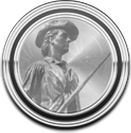
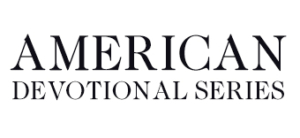
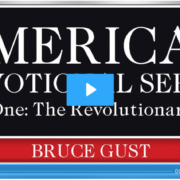

Leave a Reply
Want to join the discussion?Feel free to contribute!